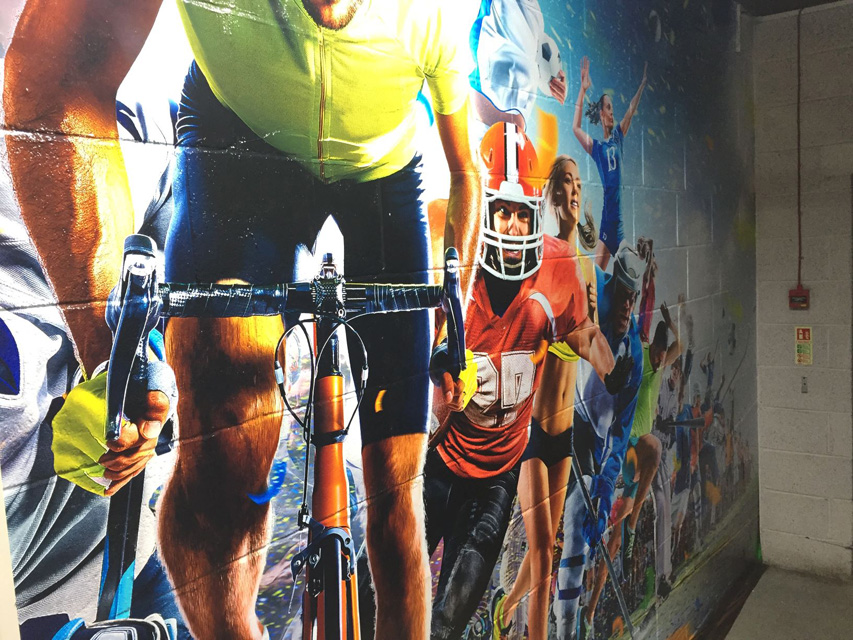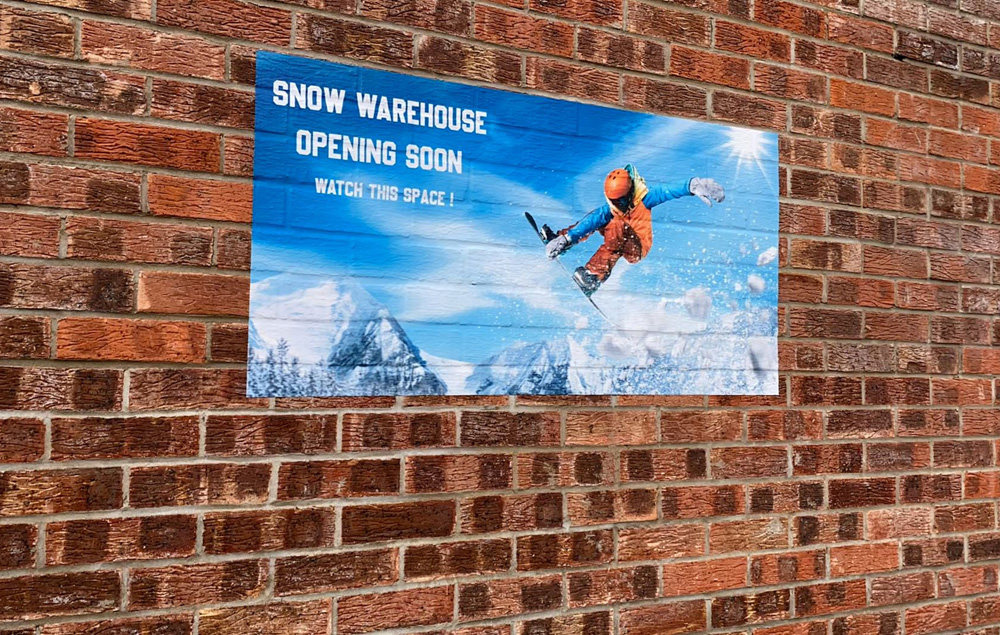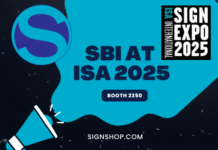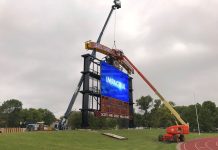Graphics can be incredibly impactful, changing a room—or even a whole building—with color and design. But it’s not necessary to fight what’s already there, or to ignore the natural finish of the surface. Applying a mural or decal to bare bricks or concrete can really complement an industrial space or heritage property.
For any wall or floor graphics application, it’s essential that the graphic itself will stand the test of time. Bricks and concrete, being rough and porous, are not the easiest surfaces to work with, but these tips should help you achieve great results.
Firstly preparation is key.
Use a stiff brush to remove dust and dirt and, if necessary, use a de-greasing cleaner and leave to dry for forty-eight hours.
Next you’ll need to choose the right graphics media. A product that can conform to the rough or uneven surfaces is key. High-tack adhesive and long-term indoor/outdoor durability is also ideal for the application at hand.
There are lots of graphics media on the market, so it’s important to conduct a small-scale test on-site two to three days before the project to ensure the best adhesion and desired results.
Before you get started on the application make sure you have the right tools. You’ll need a heat gun, a squeegee, and 3D texture applicators (which will save you time and make your graphics stunning).
Apply the graphics with a squeegee first to get the initial tack, then use the heat gun, working in one direction—left to right or right to left—in order to push the air out and avoid creating air bubbles.
Work brick by brick then move to the mortar joins, thinking about where the air is going and may get trapped. Depending on how deep the mortar is, your graphics might shrink and not fit your desired location correctly, so be aware of this at the design stage.

As with many things in life, preparation is key.
Before installing graphics on brickwork and mortar, check your design is suitable for the application and be doubly sure you have the right media and the right tools to hand.
At Drytac, we have several solutions for rough surfaces. Drytac Polar Grip is a polymeric self-adhesive PVC film, that is designed to deliver up to five years’ indoor or outdoor durability thanks to its unique high-bond adhesive. It is flexible, making it ideal for curved or rough walls and comes in a choice of matte or gloss finishes and when paired with Interlam Pro Emerytex, long-term, slip-rated floor graphics can be created.
Drytac Polar Street FX is also ideal for rough surfaces including concrete, brick and asphalt, and any other low-energy surfaces. This textured printable white matte aluminium film is coated on one side with a clear, high tack adhesive and is 100 percent recyclable. Polar Street FX has also achieved several slip ratings and certifications making it ideal for public areas. Both solutions are compatible with all common digital printing technologies including eco-solvent, solvent, latex, and UV.
—Gareth Newman
Gareth Newman is academy manager at Drytac.











